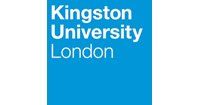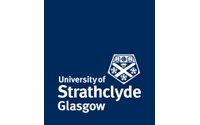
Sustainable Urban Planning and Development
Course ID: 2506230101397ESH
Course Dates : 23/06/25 Course Duration : 5 Studying Day/s Course Location: London, UK
Language: Bilingual
Course Category: Professional and CPD Training Programs
Course Subcategories: Operations and Process Excellence
Course Certified By: ESHub CPD & LondonUni - Executive Management Training
* Professional Training and CPD Programs
Leading to:
Executive Diploma Certificate
Leading to:
Executive Mini Masters Certificate
Leading to
Executive Masters Certificate
Certification Will Be Issued From :
From London, United Kingdom
Course Fees: £5,120.30
Vat Not Included in the price. VAT may vary depending on the country where the course or workshop is held.
Click to Pay
Date has passed please contact us Sales@e-s-hub.com
Course Information
Introduction
Sustainable urban planning and development is a dynamic and multifaceted discipline that addresses the needs of growing populations while maintaining a focus on environmental stewardship, economic viability, and social equity. This course will delve into the principles and strategies of urban sustainability, offering professionals the knowledge to design, implement, and manage urban spaces that are both resilient and resource-efficient. As urbanization continues to escalate, the pressure on infrastructure, natural resources, and the built environment becomes increasingly complex, necessitating well-rounded solutions that integrate sustainable practices.
The core of sustainable urban planning lies in balancing the environmental, social, and economic impacts of urbanization. This requires an in-depth understanding of the built environment, the natural environment, and the intricate relationships between human activities and the ecosystems that support them. As cities evolve into hubs of innovation and economic activity, they also face challenges such as traffic congestion, air pollution, lack of affordable housing, and climate change risks. These issues highlight the need for planners who can effectively incorporate sustainability principles into the design and operation of cities.
In addressing these challenges, urban planners must consider a variety of factors, such as urban density, green spaces, energy efficiency, waste management, water conservation, and sustainable transportation systems. Additionally, public policies and stakeholder engagement play crucial roles in the success of sustainable urban development projects. It is essential for planners to align their projects with local and international sustainability goals, including those outlined by the United Nations Sustainable Development Goals (SDGs), which serve as a global framework for urban planning initiatives.
Sustainable urban planning also requires an understanding of the latest technological advancements that support environmental and economic efficiency. Green building technologies, smart city solutions, renewable energy integration, and data-driven urban management systems are transforming how cities function and interact with their citizens. These technologies offer innovative ways to reduce carbon footprints, improve quality of life, and enhance the overall resilience of cities.
One of the most significant aspects of this field is the concept of "resilience." A sustainable city must be resilient to both short-term disruptions (such as natural disasters and economic downturns) and long-term changes (such as climate shifts and demographic transitions). Planning for resilience involves identifying vulnerabilities and creating systems that can adapt to these challenges, ensuring that urban environments are not only sustainable but also capable of thriving in the face of adversity.
The benefits of sustainable urban planning are profound, extending beyond the immediate impact on infrastructure and the environment. By fostering urban spaces that are livable, equitable, and resilient, cities can promote social inclusion, improve public health, create economic opportunities, and mitigate the negative effects of climate change. This course aims to equip professionals with the knowledge and tools to lead these efforts, contributing to the creation of sustainable, vibrant urban spaces that can support future generations.
Objectives
By attending this course, participants will be able to:
Identify key principles of sustainable urban planning, including environmental, economic, and social considerations.
Analyze the challenges and opportunities of urban sustainability in the context of climate change and population growth.
Develop strategies for integrating sustainable practices into urban development projects, such as energy-efficient infrastructure, green building design, and sustainable transportation systems.
Apply the concepts of urban resilience and risk management to address vulnerabilities in urban environments.
Implement innovative technologies and data-driven solutions in urban planning, including smart city initiatives and green building technologies.
Understand and comply with relevant urban planning regulations, policies, and global sustainability frameworks, such as the UN SDGs.
Engage and collaborate with stakeholders, including government bodies, communities, and private sector organizations, to achieve sustainable urban development goals.
Assess the economic, social, and environmental impact of urban development projects and propose effective solutions for improvement.
Promote public awareness and advocacy for sustainable urban planning practices at local and international levels.
Who Should Attend?
This course is ideal for:
Urban planners, architects, and civil engineers who seek to deepen their understanding of sustainable development practices.
Government officials and policy makers involved in urban planning, environmental management, and housing.
Real estate developers and project managers working on urban development and infrastructure projects.
Environmental consultants and sustainability specialists looking to expand their knowledge on sustainable urban practices.
Academics and researchers in urban studies, environmental science, and related fields.
Professionals from non-governmental organizations (NGOs) and international development agencies focused on urban sustainability and climate change mitigation.
Training Method
• Pre-assessment
• Live group instruction
• Use of real-world examples, case studies and exercises
• Interactive participation and discussion
• Power point presentation, LCD and flip chart
• Group activities and tests
• Each participant receives a 7” Tablet containing a copy of the presentation, slides and handouts
• Post-assessment
Program Support
This program is supported by:
* Interactive discussions
* Role-play
* Case studies and highlight the techniques available to the participants.
Daily Agenda
Daily Schedule (Monday to Friday)
- 09:00 AM – 10:30 AM Technical Session 1
- 10:30 AM – 12:00 PM Technical Session 2
- 12:00 PM – 01:00 PM Technical Session 3
- 01:00 PM – 02:00 PM Lunch Break (If Applicable)
- Participants are expected to engage in guided self-study, reading, or personal reflection on the day’s content. This contributes toward the CPD accreditation and deepens conceptual understanding.
- 02:00 PM – 04:00 PM Self-Study & Reflection
Please Note:
- All training sessions are conducted from Monday to Friday, following the standard working week observed in the United Kingdom and European Union. Saturday and Sunday are official weekends and are not counted as part of the course duration.
- Coffee and refreshments are available on a floating basis throughout the morning. Participants may help themselves at their convenience to ensure an uninterrupted learning experience Provided if applicable and subject to course delivery arrangements.
- Lunch Provided if applicable and subject to course delivery arrangements.
Course Outlines
Introduction to Sustainable Urban Planning
Key Concepts and Principles of Sustainable Urban Planning
Environmental, Social, and Economic Pillars of Sustainability
Understanding the Urbanization Trend: Challenges and Opportunities
Overview of Global and Local Sustainability Frameworks (e.g., UN SDGs)
Day 2:
Urban Resilience and Climate Adaptation
The Concept of Resilience in Urban Planning
Climate Change and Its Impact on Urban Areas
Strategies for Building Resilient Urban Infrastructure
Disaster Risk Reduction and Emergency Preparedness in Urban Settings
Day 3:
Sustainable Infrastructure and Green Technologies
Energy-Efficient Buildings and Green Architecture
Smart Cities: Integrating Technology for Sustainable Urban Management
Renewable Energy Solutions for Urban Development
Waste Management and Circular Economy in Urban Planning
Day 4:
Sustainable Transportation and Urban Mobility
Designing Sustainable and Efficient Transportation Systems
Public Transport, Cycling, and Pedestrian-Friendly Urban Spaces
Reducing Carbon Emissions in Urban Transport Systems
Policy and Regulation for Sustainable Mobility
Day 5:
Stakeholder Engagement, Compliance, and Future Directions
Engaging Stakeholders in Sustainable Urban Development Projects
Navigating Local and International Urban Planning Regulations and Policies
Case Studies of Successful Sustainable Urban Planning Projects
Future Trends in Urban Sustainability and Planning Technologies



















































